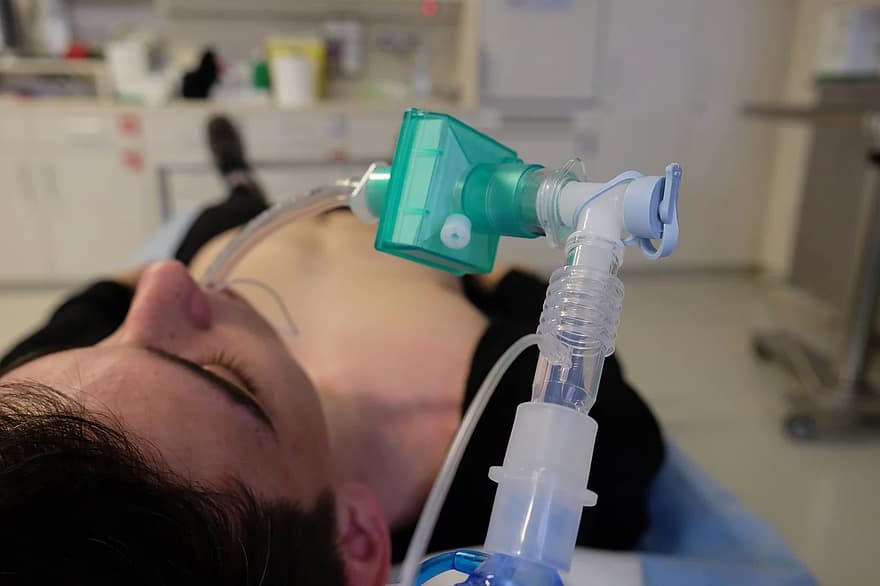Covid-19 patients can suffer long-term lung and heart damage but, for many, this tends to improve over time, according to the first, prospective follow-up of patients infected with the coronavirus, presented at the European Respiratory Society International Congress.
Covid-19 causes respiratory disease and in serious cases, it can lead to pneumonia, and hence, the entire country has been put under lockdown. Thus, it is the need of the hour to keep lung problems at bay as people with existing ailments are at a higher risk of getting sick owing to coronavirus.
Lung And Heart Damage in Covid patients
Researchers in the Covid-19 ‘hot spot’ in the Tyrolean region of Austria recruited consecutive coronavirus patients to their study, who were hospitalised at the University Clinic of Internal Medicine in Innsbruck, the St Vinzenz Hospital in Zams or the cardio-pulmonary rehabilitation centre in Munster, Austria. In their presentation to the virtual congress, they reported on the first 86 patients enrolled between 29 April and 9 June, although now they have over 150 patients participating.
The patients were scheduled to return for evaluation six, 12 and 24 weeks after their discharge from hospital. During these visits, clinical examinations, laboratory tests, analysis of the amounts of oxygen and carbon dioxide in arterial blood, lung function tests, computed tomography (CT) scans and echocardiograms were carried out.
At the time of their first visit, more than half of the patients had at least one persistent symptom, predominantly breathlessness and coughing, and CT scans still showed lung damage in 88% of patients. However, by the time of their next visit 12 weeks after discharge, the symptoms had improved and lung damage was reduced to 56%. At this stage, it is too early to have resulted from the evaluations at 24 weeks.
“The bad news is that people show lung impairment from Covid-19 weeks after discharge; the good news is that the impairment tends to ameliorate over time, which suggests the lungs have a mechanism for repairing themselves,” said Dr Sabina Sahanic, who is a clinical PhD student at the University Clinic in Innsbruck and part of the team that carried out the study, which includes Associate Professor Ivan Tancevski, Professor Judith Loffler-Ragg and Dr Thomas Sonnweber in Innsbruck.
The average age of the 86 patients included in this presentation was 61 and 65% of them were male. Nearly half of them were current or former smokers and 65% of hospitalised Covid-19 patients were overweight or obese. Eighteen (21%) had been in an intensive care unit (ICU), 16 (19%) had had invasive mechanical ventilation, and the average length of stay in hospital was 13 days.
A total of 56 patients (65%) showed persistent symptoms at the time of their six-week visit; breathlessness (dyspnoea) was the most common symptom (40 patients, 47%), followed by coughing (13 patients, 15%). By the 12-week visit, breathlessness had improved and was present in 31 patients (39%); however, 13 patients (15%) were still coughing.
YOU MAY LIKE TO READ: Coronavirus Patients Can Suffer Irreversible Heart Damage: Study
How to deal with common respiratory problems during Covid 19
Dr Jeenam Shah, Consultant Interventional Pulmonologist, Wockhardt Hospital Mumbai, shared some tips with Healthwire Media on how you can deal with common respiratory problems that one may suffer during rainy reason-
- Include foods such as apples, foods jam-packed with omega-3 fatty acids such as walnuts, broccoli that is jam-packed with antioxidants, in your diet. Beans can help fight free radicals that tend to damage your lungs. Berries contain antioxidants, and foods such as papaya, pineapple, Kiwi, cabbage, carrots, turmeric, and ginger can help strengthen the immune system.
YOU MAY LIKE TO READ: COVID-19 Can Have Long-Term Effects, May Leave Some With Permanent Lung Damage
- Exercise on a daily basis to cut down those excess kilos, and opt for relaxation techniques such as yoga or meditation to relax.
- Avoid smoking or second-hand smoke or toxic inhalants and wear a mask. Hookah and Vaping can also deteriorate your lung health. Hence, avoid these as well. Cover your mouth while coughing and sneezing. Try to keep your asthma medication handy and stock the medications.
- Do breathing exercises regularly. This can help clear mucus from the lungs and also lowers the risk of a flare-up.
- The ones with allergies or any lung disease should be vaccinated for pneumonia and flu as per the advice from the doctor.











